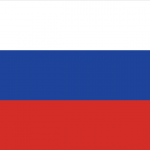
Sustainability Efforts
Country: Russia
Explore sustainability efforts in Russia. The United States Environmental Protection Agency (“EPA”) said it well when they state:
“Sustainability is based on a simple principle: Everything that we need for our survival and well-being depends, either directly or indirectly, on our natural environment. To pursue sustainability is to create and maintain the conditions under which humans and nature can exist in productive harmony to support present and future generations.”
Curiosity and interest made us wonder what other countries are doing with respect to this topic. Hence, the purpose of this page.
About Russia
Russia, the largest country in the world, spans across Eastern Europe and northern Asia. It offers a rich history, diverse culture, and vast landscapes. Russia’s iconic landmarks include Moscow’s Red Square and the Hermitage Museum in St. Petersburg. The country boasts breathtaking natural wonders like Lake Baikal and the Trans-Siberian Railway. Russian culture is showcased through its literature, ballet, and traditional music. The country’s cuisine features hearty dishes like borscht and pelmeni. Russia’s influence on global politics, science, and arts is significant. Its unique blend of history, art, and natural beauty make it a captivating destination for travelers. Sustainability efforts in Russia will enhance the country’s future.
Sustainability Efforts
Toggle each button below to “open” and “close” the presented data.

Addressing poverty remains a significant challenge for Russia, given its size and socio-economic diversity. The government has implemented various social assistance programs to support vulnerable populations and alleviate poverty rates. However, income disparities and regional variations continue to pose obstacles to achieving comprehensive poverty eradication.

Food security remains a priority for Russia, and the nation has been making efforts to ensure sufficient food supply for its citizens. Agriculture and food production sectors have been bolstered, contributing to reduced food insecurity in recent years. Nevertheless, continued vigilance and strategic policies are required to sustainably combat hunger in all regions.

Recognizing the importance of accessible healthcare, Russia has been working towards enhancing its healthcare system. The government has invested in modernizing medical facilities, improving healthcare infrastructure, and expanding healthcare coverage to reach remote areas. Though progress has been made, maintaining the quality of healthcare services and addressing public health challenges remain vital tasks.

Education has long been a cornerstone of Russia's legacy. The country takes pride in its strong emphasis on education and scientific research. Russia continues to invest in education at all levels, promoting STEM (Science, Technology, Engineering, and Mathematics) fields and nurturing talents to drive innovation and progress.

Efforts towards gender equality have been a focus of Russia's development agenda. Legal reforms and awareness campaigns have sought to address gender disparities and enhance women's participation in various sectors. While progress has been made, challenges persist, and continued efforts are needed to create an environment of equal opportunities and rights for all genders.

Ensuring access to clean water and improved sanitation is crucial for Russia's vast and diverse territories. The nation has invested in water infrastructure projects and environmental protection measures to safeguard its water resources. Conservation efforts and pollution control are ongoing priorities to maintain water quality and ecological balance.

In response to the global call for renewable energy, Russia has invested in affordable clean energy sources. Embracing solar, wind, and hydropower, the country has made significant strides in reducing its reliance on fossil fuels. By prioritizing renewable energy solutions, Russia not only contributes to the global fight against climate change but also creates a more sustainable and resilient energy sector.

Russia's economy is driven by its natural resources, manufacturing, and technology sectors. The government endeavors to foster economic growth through investment in infrastructure, diversification of the economy, and support for small and medium-sized enterprises.

Russia has a history of scientific and technological achievements. The country continues to prioritize research and development to foster innovation in various industries. Encouraging entrepreneurship and promoting collaboration between academia and the private sector are key strategies in driving industry innovation.

Addressing income disparities and regional inequalities remains a challenge for Russia. The government is focused on social policies to reduce inequalities and provide equal opportunities for all citizens, regardless of their background or geographic location.

Russia's urban centers face unique challenges in achieving sustainable development. The government has been investing in smart city technologies, sustainable urban planning, and public transportation to create livable and eco-friendly cities.

Promoting responsible consumption and production practices is a priority for Russia's sustainable development goals. The government encourages waste reduction, recycling, and environmentally friendly production processes to minimize the ecological footprint.

As a signatory to international climate agreements, Russia is committed to climate action. The nation is actively working to reduce carbon emissions and enhance climate resilience through sustainable practices and environmental protection measures.

Russia boasts extensive coastlines and significant freshwater resources. Protecting its aquatic environment is crucial for biodiversity conservation and sustainable fisheries. The nation is dedicated to preserving marine ecosystems and addressing water pollution.

Russia has been working towards strengthening peace and justice institutions to ensure stability and security. Reforms in the legal system and law enforcement aim to uphold the rule of law and protect citizens' rights.

Preserving its vast natural landscapes and rich biodiversity is a priority for Russia. The nation has designated numerous protected areas and national parks to conserve its unique flora and fauna.

Russia recognizes the importance of international collaboration in achieving sustainable development goals. Engaging in partnerships with other countries and global organizations allows Russia to contribute to collective efforts and exchange best practices.



